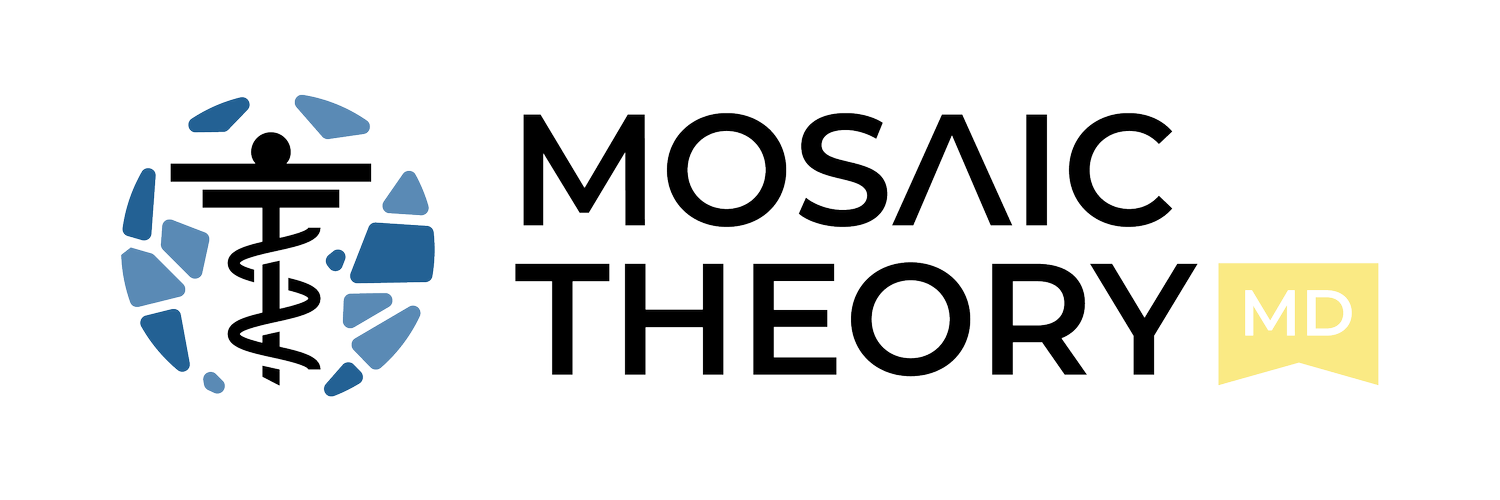Difference between Chronological and Biological Age: Reverse Your Aging
“Age is just a number” isn't just a cliché you hear on your 40th birthday; it’s backed by science. Everyone has two ages: the one you’re familiar with and another you might not know about. The first is your chronological age, and the second is your biological age. But what’s the difference between them?
While people celebrate your birthday each year, your cells tell a different story. Your cells reflect your biological age, which is your physiological age. This measures the health and function of your tissues and organs, making it an important indicator of your overall well-being. Defining biological age in Northern Virginia is as easy as a biological age test that we offer here at Mosaic Theory.
Chronological Age vs. Biological Age
Have you ever noticed two people with the same age and almost identical genes, like twins, where one looks older than the other? This happens because the aging process varies for each person. Lifestyle choices significantly influence how we age.
What is Chronological Age?
Chronological age measures the time that has passed from your birth to today. It's the total number of years, months, and days you’ve been alive. This age is fixed and cannot be changed.
What is Biological Age?
Biological age, also known as physiological or functional age, reflects your health status and results from the wear and tear on your cells and tissues. Knowing your biological age can help predict the risk of age-related diseases and mortality.
Your body’s organs age at different rates, so each has its own biological age. For example, someone who spends a lot of time looking at screens but maintains a balanced diet and exercise routine could have eyes with a high biological age and a heart with a lower biological age.
The key difference between chronological and biological age is that you can potentially reverse your biological age.
Why Does Biological Age Matter?
The first step to understanding your health profile is knowing your biological age. Biological age indicates the extent of damage to your body's cellular and metabolic functions, and it predicts age-related diseases like diabetes and cardiovascular issues, as well as mortality risk, better than chronological age.
If your biological age matches your actual age, it suggests your body is aging at a typical rate. However, if your biological age is lower than your chronological age, it means your body is aging slower than average. Conversely, if your biological age is higher than your chronological age, it indicates your body is aging faster and is in a worse state than it should be.
Factors That Influence Your Biological Age
Progress has been made in identifying the factors that directly affect your biological age. It's influenced by multiple elements, and while a healthy lifestyle can help, it doesn’t guarantee an improvement in biological age. Here are several factors that can impact and potentially reverse your biological age:
Genetics:
Genetics influence every aspect of your health, including your biological age. Certain genes directly affect age-related diseases, and their expression can either prolong or shorten your biological age. The GenAge database lists over 300 human aging-related genes, and the LongevityMap database of human genetic association studies contains over 500 results. Mutations in these genes can cause premature aging syndromes. While you can't change your DNA, knowing your genetic predispositions can guide lifestyle choices that promote longevity. Book a free consultation to learn how we can test your genetics. Our providers are happy to explain more about biological age test cost and procedures.
Diet:
Diet plays a crucial role in biological aging, either contributing to or reducing inflammation. Increasing plant-based protein intake can reduce the risk of cardiovascular disease and improve various biomarkers, including cholesterol, triglycerides, and glucose, which affect biological age. A balanced diet rich in vegetables, fruits, and low in sodium is linked to a lower biological age and a slower rate of aging.
Exercise:
Regular physical activity boosts the immune system, maintains a healthy body weight, and lowers the risk of inflammation. Studies show that individuals who exercise for 150 minutes per week have aging markers nine years younger than those who lead a sedentary lifestyle. Adding aerobic exercise to your routine can make you approximately 5.5 years younger biologically compared to sedentary individuals.
Other Factors:
Sleep, stress, and your physical environment also affect biological aging. Poor sleep negatively impacts biological age and longevity. Environmental toxins can accelerate your biological age as well.
Understanding these factors and incorporating positive changes can help you manage and potentially reverse your biological age.
Defining Biological Age in Northern Virginia
Longevity medicine is a young field with constantly evolving knowledge and practices. Navigating research data and integrating novel approaches with established protocols requires constant learning and adaptability. If you're looking for a way to improve muscle strength, a preventative care doctor in Northern Virginia, and are interested in learning more about the biological age test costs, please reach out to us at Mosaic Theory MD for a complimentary meet and greet.

